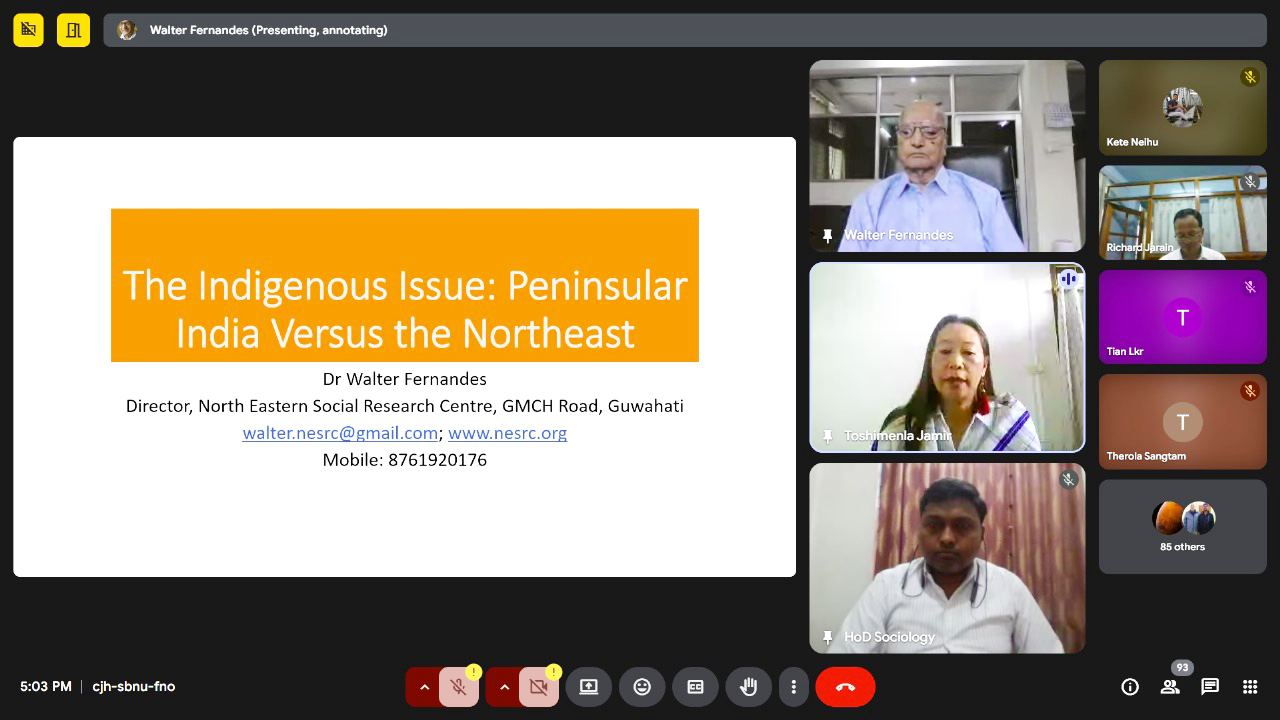The Tribal Research Centre, Nagaland University, organised a webinar on “The Indigenous Issue and Identity: Peninsular India versus the Northeast” in commemoration of the International Day of the World’s Indigenous Peoples 2025. The session, held on August 9, featured the insights of eminent social scientist, Dr. Walter Fernandes, Director of the North Eastern Social Research Centre (NESRC), Guwahati.
Dr. Fernandes began by posing the question, “Who is indigenous?” and explained that the term ‘indigenous’ carries different meanings globally and in India; further, it is applied distinctly in Peninsular and Northeast contexts.
The speaker contrasted the peninsular and Northeast indigenous experiences in his talk. In Peninsular India, myths of origin, sacred groves, and gradual conquests shape identity, with land, water, and forests forming the core of indigeneity, resources that were threatened under colonial rule, he said.
In the Northeast, however, identity is more clearly defined through customary laws and autonomy, he added.
He further stated over time, Peninsular struggles have evolved from fighting displacement and land alienation to resisting cultural domination by “a dominant religion imposing its identity.” In contrast, the Northeast continues to prioritise autonomy and customary law, even as it now faces increasing alienation from land and resources to outsiders, migrants, non-tribals, and the state in the name of national development.
Dr. Fernandes further addressed deepening divisions over land control among indigenous communities in northeast India. He observed that “Competition has arisen between the tribes,” and opined that “the indigenous issue has taken a new turn.”
Download Nagaland Tribune app on Google Play

He concluded with a strong emphasis on the need for indigenous communities to work collectively in addressing their challenges, a process that, as noted, “may not happen in a day” but requires leaders to pursue development rooted in equality, justice, and reconciliation.
Participants were urged to recognise that indigenous issues stand at a critical crossroad, shaped by shifting identities, contested land politics, and the mounting pressures of development.
Dr. Walter’s talk was followed by a discussion among the participants, deliberating on various issues related to the topic of the webinar.
Dr. Srikanth Yamsani, Assistant Professor at the Tribal Research Centre, presented a vote of thanks expressing gratitude to all participants and attendees for their engagement in the webinar.
The event drew more than 100 participants, including teachers, scholars, postgraduate students, and independent researchers from various institutions. The webinar was chaired by Prof. Toshimenla Jamir, Head, Department of Sociology and the Director, Tribal Research Centre at Nagaland University, who extended greetings on the occasion.

